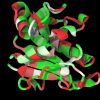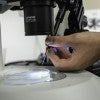
RSI awards seed funding grants to propel ‘pioneering’ space exploration research at Rice
The Rice Space Institute has awarded $150,000 in seed funding to Rice researchers to further our understanding of the universe and humanity’s place in it.

RSI awards seed funding grants to propel ‘pioneering’ space exploration research at Rice
The Rice Space Institute has awarded $150,000 in seed funding to Rice researchers to further our understanding of the universe and humanity’s place in it.

Rice’s Emilia Morosan awarded prestigious Vannevar Bush Faculty Fellowship
Physicist wins Department of Defense’s most prestigious single-investigator award

Rice researchers unveil secrets behind viral precision
New research from Rice scientists is shedding light on how viruses ensure their survival by precisely timing the release of new viruses.

Rice experts available to discuss variety of Olympic-related topics on 2024 Paris Games
Experts from are available to discuss Olympic-related topics with the media.

Researchers discover ancient chromosomes in 52,000-year-old woolly mammoth
Researchers have discovered fossils of ancient chromosomes preserved in the remains of a woolly mammoth that died 52,000 years ago.

Summer in the City of Light: Rice students explore Paris through Global classes
Under a Rice Blue sky 5,000 miles from the Houston campus, class was in session during the summer months.

Rice researchers uncover key mechanisms in chromosome structure development
Researchers at Rice are making strides in understanding how chromosome structures change throughout the cell’s life cycle.

Rice research aims to reprogram the genetic code
Chemist Han Xiao has been awarded nearly $2 million from the National Institutes of Health Maximizing Investigators’ Research Award.

Do genes-in-pieces code for proteins that fold in pieces?
A new study led by Peter Wolynes offers new insights into the evolution of foldable proteins.

New CPRIT chemistry professor to enhance cancer research at Rice
Rice’s Department of Chemistry will soon welcome Professor David Sarlah.

Researchers discover new flat electronic bands, paving way for advanced quantum materials
A team of scientists led by Qimiao Si predicts the existence of flat electronic bands at the Fermi level.

Exploring climate change through wine
Among the courses recently offered at the Rice Global Paris Center was “Climate Change, Economics and the Wine Industry,” which brought students to Paris for three weeks in May.

Rice to host ISU space robotics competition June 21
Space industry professionals from around the world are set to compete in a space-themed robotics competition at Rice.

More than 200 space industry professionals gathered at Rice for the opening ceremony of the International Space University’s Space Studies Program.

Rice researchers uncover surprising role of opioid receptors in gut development
Researchers at Rice have revealed a previously unknown function of opioid receptors in the development of the enteric nervous system.